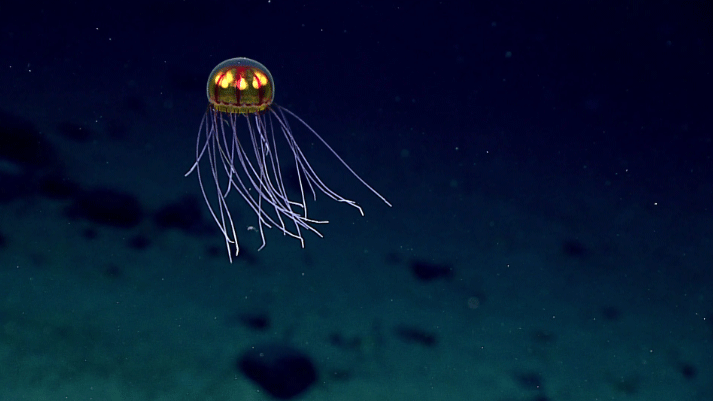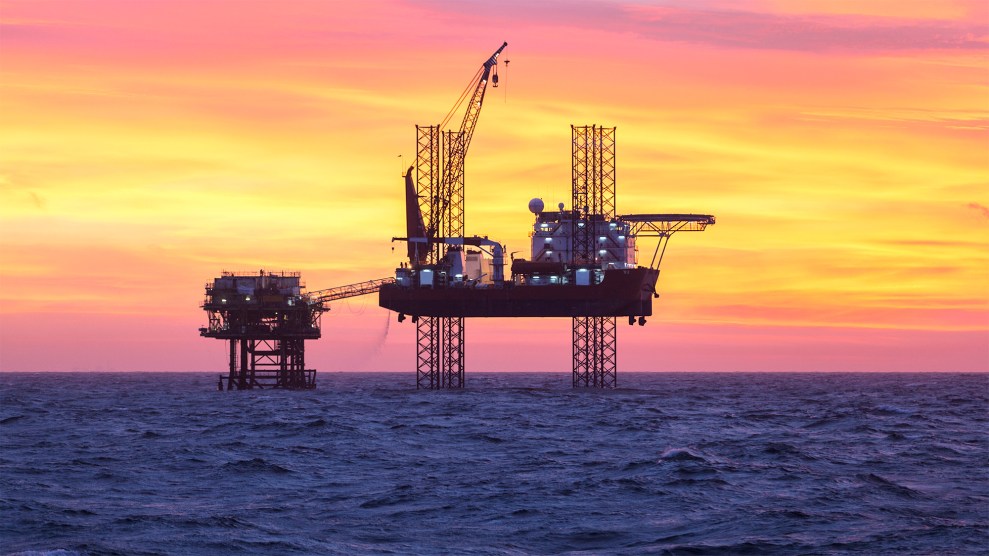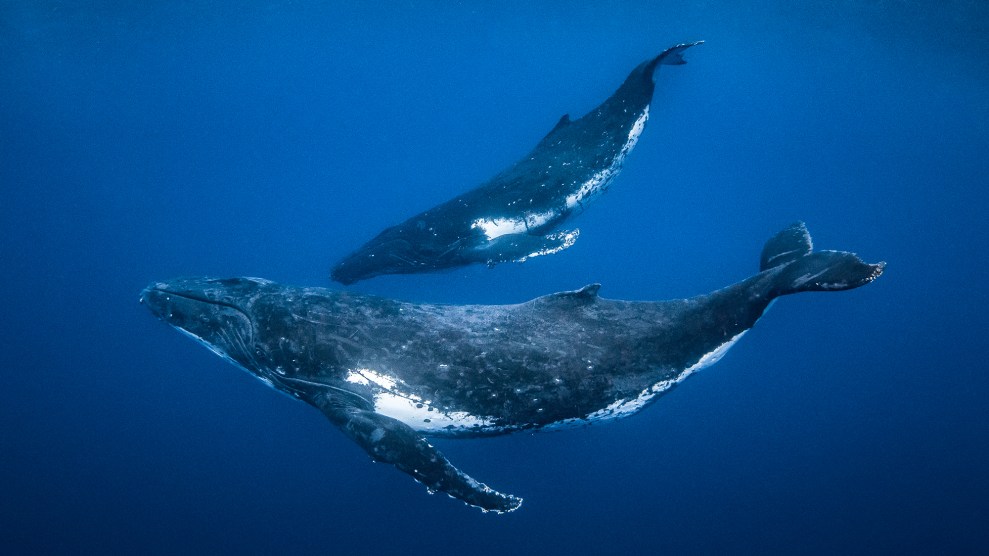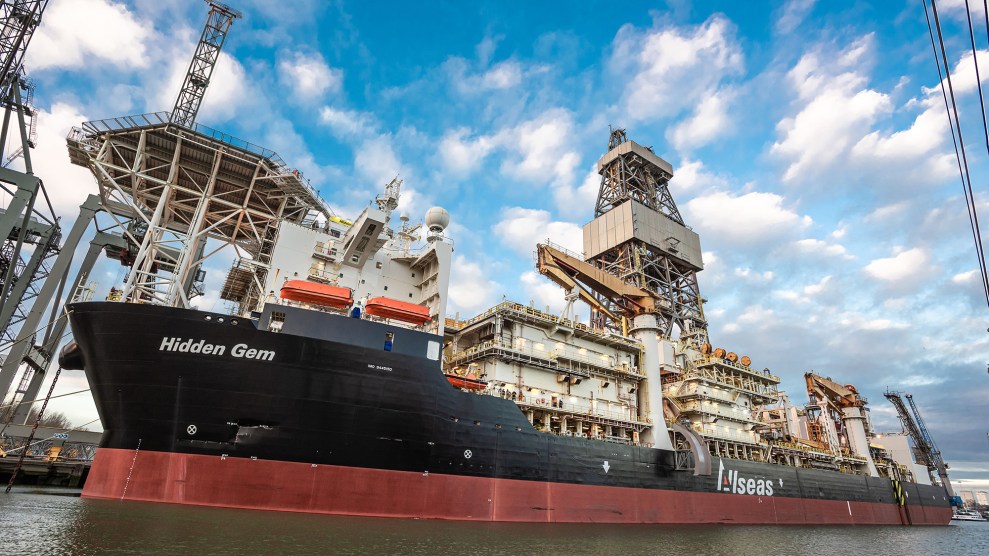
Deep-sea mining would cause "extensive and irreversible" damage to sensitive habitats.NOAA
This story was originally published by the Guardian and is reproduced here as part of the Climate Desk collaboration.
An investigation by conservationists has found evidence that deep-seabed mining of rare minerals could cause “extensive and irreversible” damage to the planet.
The report, published on Monday by the international wildlife charity Fauna & Flora, adds to the growing controversy that surrounds proposals to sweep the ocean floor of rare minerals that include cobalt, manganese and nickel. Mining companies want to exploit these deposits—which are crucial to the alternative energy sector—because land supplies are running low, they say.
However, oceanographers, biologists and other researchers have warned that these plans would cause widespread pollution, destroy global fish stocks, and obliterate marine ecosystems. “The ocean plays a critical role in the basic functioning of our planet, and protecting its delicate ecosystem is not just critical for marine biodiversity but for all life on Earth,” said Sophie Benbow, the organization’s marine director.
Fauna & Flora first raised concerns about ocean mining in a 2020 report. Since then, scientists have intensified their study of deep-sea zones and highlighted further dangers posed by mining there. These form the focus of the organization’s report. “It has become increasingly clear in the last couple of years that, apart from other dangers, deep-sea mining poses a particular threat to the climate,” said Catherine Weller, Fauna & Flora’s director of global policy. “The deep sea holds vast reservoirs of carbon which could be completely disrupted by mining on the scale being proposed and exacerbate the global crisis we are experiencing through rising greenhouse gas levels.”
Recent research has also emphasized that our knowledge and understanding of biodiversity is woefully incomplete. “Each time an expedition is launched to collect species, we find that between 70 percent and 90 percent of them are new to science,” said Benbow. “It is not just new species, but whole genera of plants and creatures about which we had previously known nothing.”
This view is supported by David Attenborough, who has called for a moratorium on all deep-sea mining plans. “Mining means destruction, and in this case it means the destruction of an ecosystem about which we know pathetically little,” he said.
Delicate, long-living denizens of the deep—polychaete worms, sea cucumbers, corals and squid—would be obliterated by dredging, researchers have warned. Nor would there be any chance of a quick recovery. At depths of several kilometres, food and energy are limited, and life proceeds at an extraordinarily slow rate. “Once lost, biodiversity will be impossible to restore,” says the report.
The battle over our planet’s deep-sea resources focuses primarily on the trillions of nodules of manganese, nickel, and cobalt that litter the ocean floor. These metals are critical to the manufacture of electric cars, wind turbines, and other devices that will be needed to replace carbon-emitting lorries, power plants, and factories.
As a result, mining companies are now jostling to dredge them up in vast quantities using robot rovers—attached by pipelines to surface ships—that would trundle over the ocean floor, sucking up nodules and pumping them to their mother craft.
But operations like these would devastate our already stressed oceans, destroy their delicate ecosystems and send plumes of sediments, laced with toxic metals, spiraling upwards to poison marine food-chains, say marine biologists.
For their part, mining companies have defended their plans by pointing out that drilling for mineral reserves on land is even more damaging to the planet’s stressed ecosystems. If we focus all our efforts to dig up cobalt, nickel, and manganese there, we will degrade the environment ever further. Better turn to the ocean depths instead, it is argued.
The claim is dismissed by Weller. “These companies are presenting deep-sea mining as a new frontier but they really mean it to be an additional frontier—for none of these companies is suggesting that if we started mining the deep seabed then they would stop mining on land. We would just be adding to our woes.”
Ocean experts are concerned about the prospects of deep-sea mining operations beginning in the near future, following the decision of the Pacific Island state of Nauru to accelerate exploitation of the sea bed. In June 2021, it notified the International Seabed Authority (ISA)—responsible for regulating mining in areas beyond national jurisdiction—of its intention to sponsor an exploitation application for nodule mining in the Pacific.
In doing so, Nauru triggered a “two-year rule”—a legal provision which creates a countdown for the ISA to adopt its first set of exploitation regulations for deep-seabed mining and could result in the green light for deep-seabed mining this year. Discussions among the 167 member states of the ISA are now under way.
“This is a critical year,” said Weller. “The newly agreed UN High Sea treaty signifies a clear global recognition of the importance of ocean conservation but collaborative efforts are still needed to keep the brakes on deep-sea mining.”














